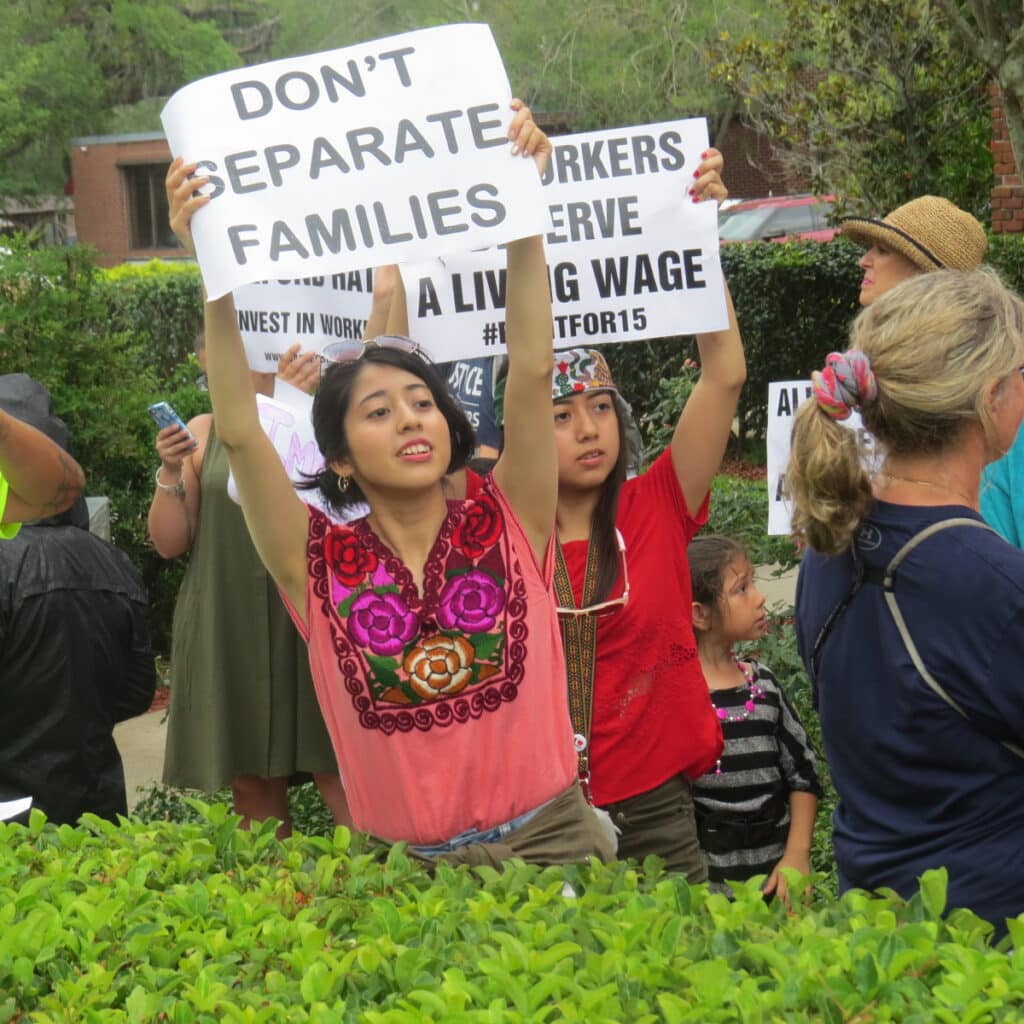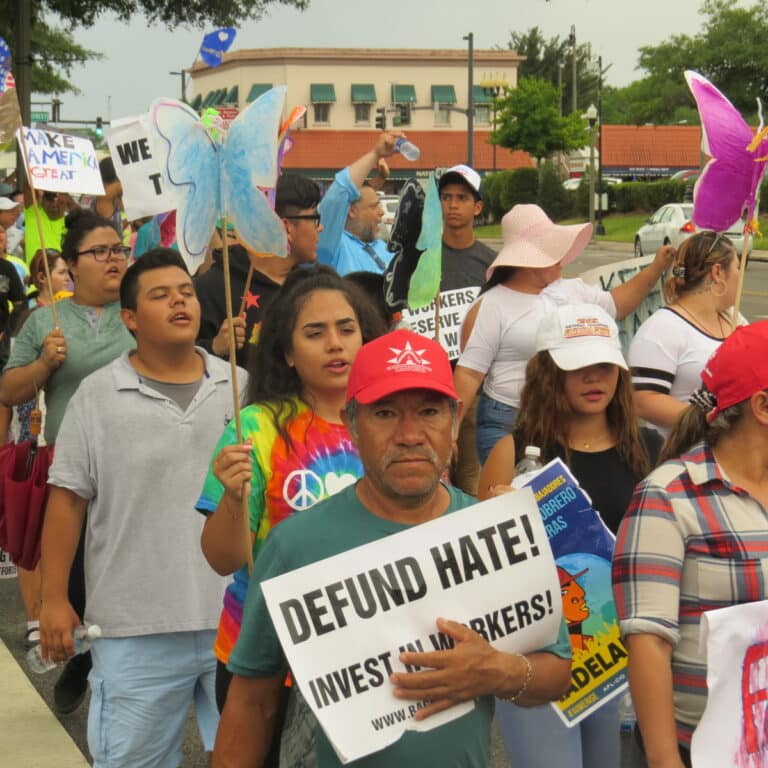Established in 1983, the Farmworker Association of Florida (FWAF) is a statewide, grassroots, community-based, non-profit, farmworker membership organization with over 10,000 Haitian, Hispanic, and African American members and five offices in the state of Florida, working for social and environmental justice with farmworkers.
Vision and Mission
The Farmworker Association of Florida’s long-standing mission is to build power among farmworker and rural low-income communities, to respond to and gain control over the social, political, economic, workplace, health, and environmental justice issues that impact their lives.
Our guiding vision is a social environment where farmworkers’ contribution, dignity, and worth are acknowledged, appreciated, and respected through economic, social, and environmental justice. This vision includes farmworkers being treated as equals, and not exploited and discriminated against based on race, ethnicity, gender, or immigrant or socioeconomic status.
In keeping true to the organization’s mission and guiding vision, FWAF’s core strategy is to help farmworkers realize and build upon their power to be effective agents of social and personal change by:

- Validating and strengthening the experiences, knowledge, and understanding of farmworkers,
-
Building farmworkers’ capacity to participate in decision-making processes that affect their lives,
- Building multiracial coalitions with other farmworker organizations promoting civic engagement and better working conditions,
- Organizing around community and labor issues,
- Raising consciousness about and advocating for farmworkers’ rights and justice.
Toward this goal, FWAF’s programs and activities build leadership, civic engagement, and activist skills among low-income communities of color who are disproportionately affected by pesticide exposure/health problems, environmental contamination, institutional racism, harassment and intimidation, exploitation, and political under-representation.
OUR Community

The Farmworker Association of Florida (FWAF) works in communities composed of low-income, Latinx and other ethnic-minority, migrant and seasonal farmworkers, many of whom are documented or undocumented immigrants, with little or no formal education, and who speak little if any English.
The membership is 94% Latinx (predominately Mexican and Central American), 3% Haitian, and 3% African American. Approximately 60% are undocumented and approximately 40% are women. A large percent live in overcrowded, substandard rental housing, and have no health insurance or worker benefits.
OUR HISTORY
FWAF is a statewide organization with five offices in Florida. Each office was established based on work around natural disasters impacting farmworkers. Each area office’s work is community-driven and accountable to their base, with local leadership committees that steer the local work and the overall work of the organization. We are proud of and work to ensure that FWAF is an organization of, by, with, and for farmworkers.
